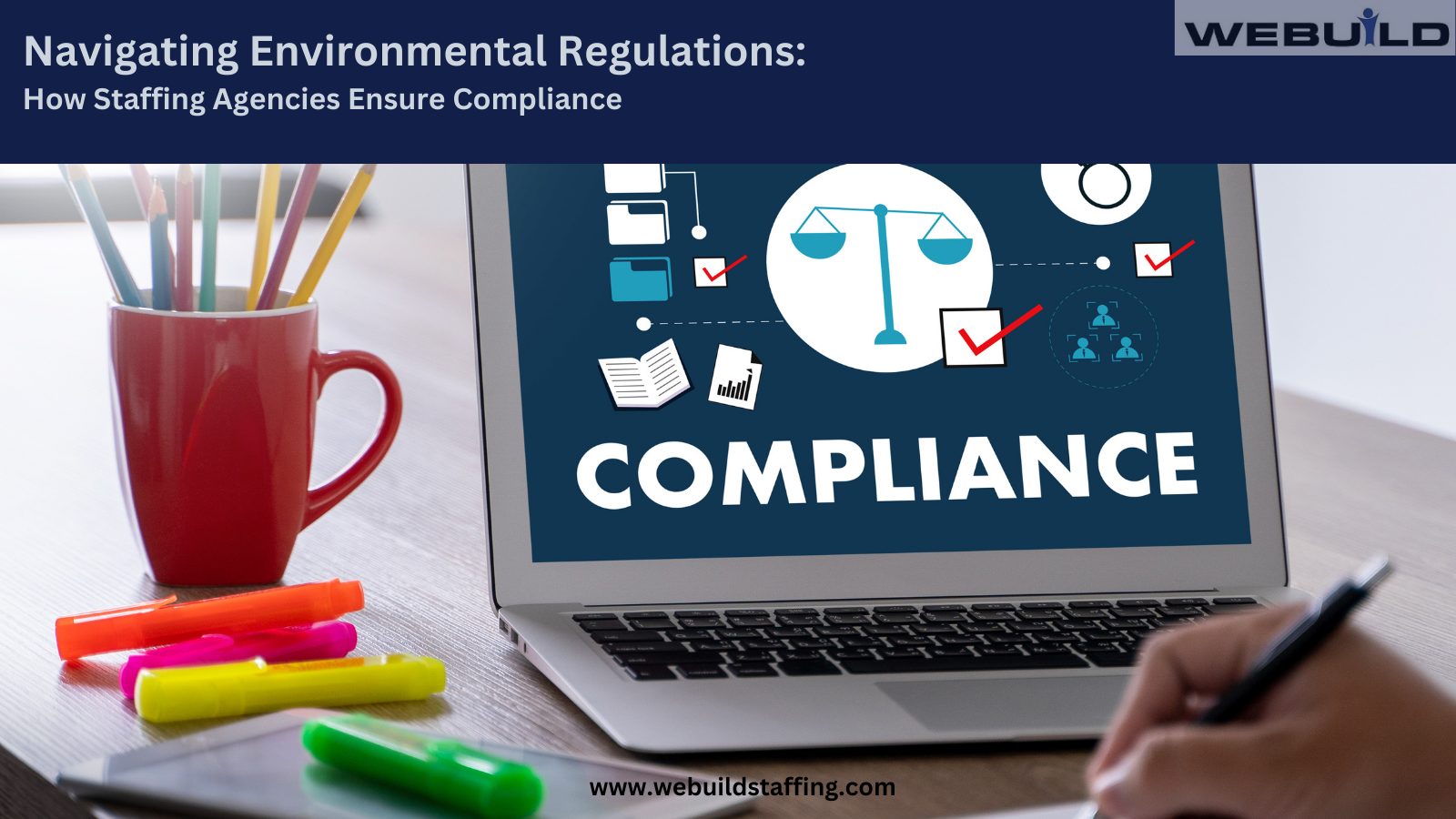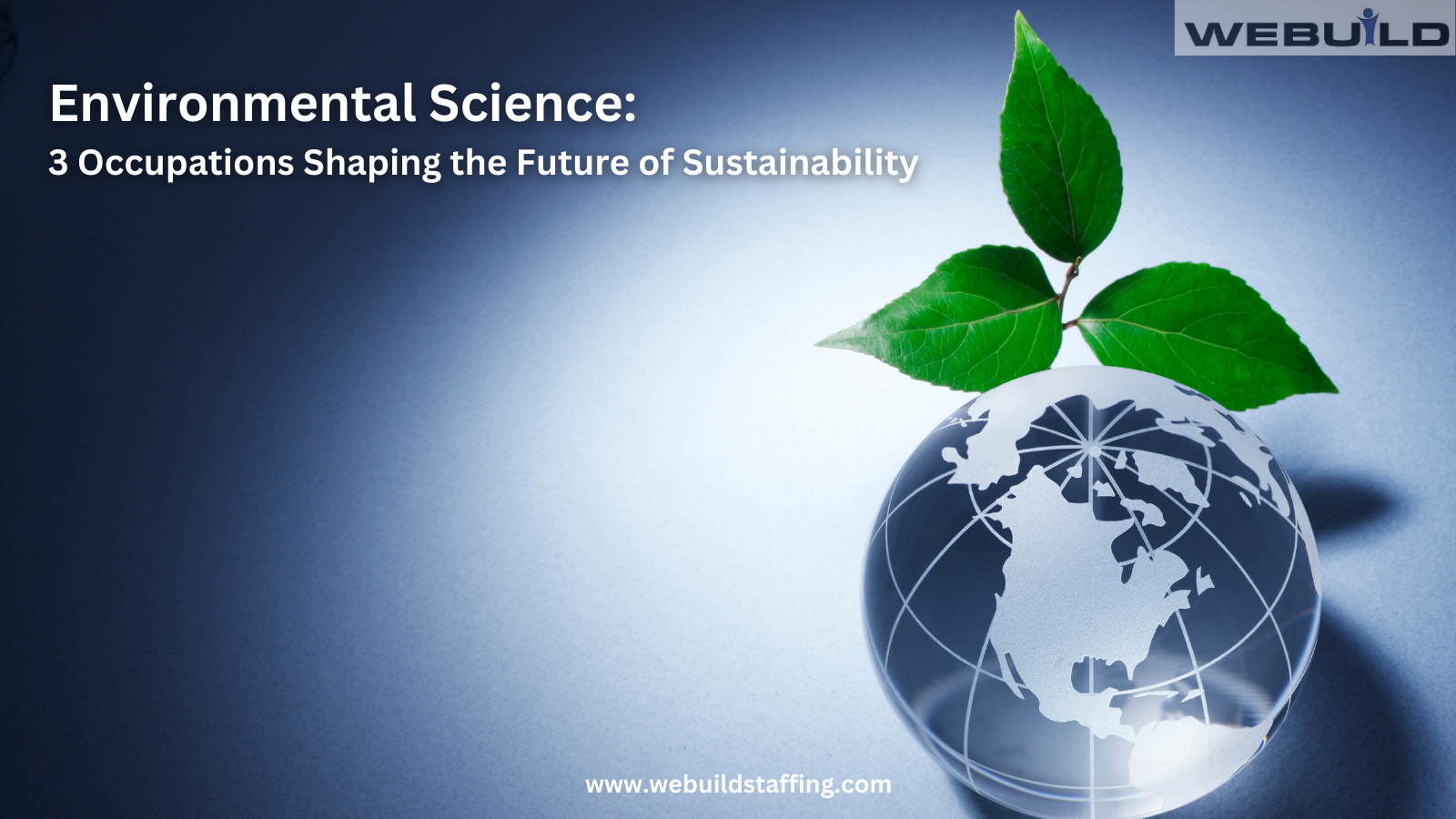Environmental Resume Writing: Highlighting Your Impact and Expertise
WEBUILD STAFFING BLOG |
Environmental Resume Writing: Highlighting Your Impact and Expertise

In the competitive field of environmental careers, a well-crafted resume is your ticket to securing the job of your dreams. Environmental professionals play a pivotal role in preserving our planet, and your resume should reflect your commitment, expertise, and impact in the field. In this comprehensive guide, we’ll delve into the art of environmental resume writing, offering insights, tips, and strategies to help you stand out and land that coveted environmental job.
Begin with a Strong Summary
Your resume should start with a compelling summary or objective statement. This brief section should convey your passion for environmental work, your expertise, and your career goals. Use this space to grab the employer’s attention and make them eager to read on.
Tailor Your Resume to the Job
One of the most critical aspects of resume writing is customization. Tailor your resume to the specific job you’re applying for by highlighting relevant skills, experiences, and accomplishments. Use keywords from the job posting to align your resume with the employer’s needs.
Highlight Your Education
In the environmental field, education plays a crucial role. Clearly list your degrees, including the institutions attended, dates of graduation, and any relevant certifications or licenses. Include your GPA if it’s impressive, but it’s not always necessary.
Emphasize Relevant Experience
Your work experience is the heart of your resume. Showcase your environmental expertise by detailing your previous roles, responsibilities, and accomplishments. Focus on the experiences that directly relate to the job you’re applying for.
- Use bullet points to describe your accomplishments, highlighting the impact you made. For example, instead of saying, “Conducted water quality tests,” say, “Conducted water quality tests that led to a 20% reduction in contamination levels.”
- Quantify your achievements whenever possible. Numbers and percentages help employers understand the scale and significance of your contributions.
Include Volunteer Work and Internships
If you have volunteered for environmental organizations or completed internships, include them in your resume. Volunteer work and internships demonstrate your commitment to the field, even if they were unpaid experiences.
Showcase Technical Skills
Environmental professionals often require technical skills, such as data analysis, laboratory techniques, GIS (Geographic Information Systems), and environmental modeling. Highlight these skills in a dedicated section of your resume, especially if they align with the job requirements.
Highlight Soft Skills
In addition to technical skills, emphasize soft skills that are valuable in the environmental field. Skills such as communication, teamwork, problem-solving, and leadership are highly sought after in the workplace.
Include Professional Affiliations
Mention any professional associations or memberships relevant to your field, such as the Environmental and Water Resources Institute (EWRI), the National Association of Environmental Professionals (NAEP), or the American Society of Environmental Professionals (ASEP).
Share Your Environmental Impact
Environmental employers are interested in candidates who can demonstrate their impact. Use specific examples to illustrate how your work has contributed to environmental sustainability, conservation, or positive change. Showcase projects, initiatives, or research that made a measurable difference.
Demonstrate Adaptability
The environmental field is dynamic, with ever-evolving challenges and technologies. Show your adaptability by mentioning any continuing education, courses, or workshops you’ve completed to stay current in the field.
Customize Your Resume’s Format
The format of your resume matters. Consider using a chronological format if you have a strong work history, and use a functional format if you’re changing careers or have gaps in your employment history. Ensure that your resume is visually appealing, easy to read, and free from errors.
Include a Relevant Cover Letter
A well-crafted cover letter can complement your resume. Use it to explain why you’re passionate about the environmental field, why you’re interested in the specific job, and how your skills and experiences align with the job requirements.
Proofread and Edit
Attention to detail is crucial. Proofread your resume carefully, checking for spelling, grammar, and formatting errors. Consider asking a friend or mentor to review it as well. A polished resume reflects your professionalism.
Use Action Verbs
When describing your experiences and achievements, use strong action verbs to convey a sense of responsibility and accomplishment. Examples include “managed,” “implemented,” “designed,” and “oversaw.”
Quantify Achievements
As mentioned earlier, quantifying your achievements adds weight to your resume. Use numbers and percentages to illustrate the impact of your work. For example, “Reduced energy consumption by 15% through the implementation of sustainable practices.”
Be Honest and Transparent
Honesty is paramount in resume writing. Never exaggerate your accomplishments or qualifications. Be transparent about your experiences and skills.
Seek Professional Assistance
If you’re unsure about your resume or want to ensure it stands out, consider seeking assistance from professional resume writers or career counselors. They can provide valuable insights and help you tailor your resume to the job market.
Online Presence
In today’s digital age, employers may also review your online presence. Ensure that your LinkedIn profile and any professional social media accounts align with your resume and showcase your environmental expertise.
Be Prepared to Discuss Your Resume
During interviews, be ready to discuss the content of your resume in detail. Provide context and elaborate on your experiences, accomplishments, and how they relate to the job you’re applying for.
Keep It Concise
While it’s important to showcase your achievements, keep your resume concise and focused. Aim for a two-page resume unless you have extensive relevant experience. Be mindful of the employer’s time and attention.
Conclusion:
A well-crafted environmental resume is your key to unlocking rewarding career opportunities in the environmental sector. By showcasing your impact, expertise, and commitment to environmental causes, you’ll stand out to potential employers who are eager to hire professionals dedicated to preserving our planet. With attention to detail, customization, and a clear presentation of your qualifications, you’ll be on your way to landing your dream environmental job and making a positive impact on the world.
Webuild Staffing Agency is a leading executive search and staffing agency dedicated to the construction, engineering and environmental industries. To learn more please visit: www.webuildstaffing.com










